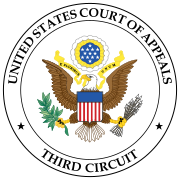|
A.D. Bedell Wholesale Co., Inc. v. Philip Morris Inc.
A.D. Bedell Wholesale Co., Inc. v. Philip Morris Inc., 263 F.3d 239 (3d Cir. 2001), was an early appellate case testing the legality of the Tobacco Master Settlement Agreement (MSA), in this instance whether it could properly be alleged to violate the Sherman Antitrust Act. Procedural historyCigarette wholesalers sued tobacco companies who were parties to the Tobacco MSA (collectively, the "Majors", who were responsible for 98% of cigarette sales in the United States). The complaint from A.D. Bedell of Salamanca, New York and other distributors alleged that the multibillion-dollar settlement with the states violated 15 U.S.C.S. §§ 1 and 2 of the Sherman Antitrust Act. The United States District Court for the Western District of Pennsylvania dismissed for failure to state a claim under Fed. R. Civ. P. 12(b)(6), on the grounds that the tobacco companies were immune from antitrust liability under the Noerr-Pennington and Parker immunity doctrines. Parties' argumentsThe wholesalers were challenging two sections of the MSA as creating an output cartel that imposes draconian monetary penalties for increasing cigarette production beyond 1998 levels and effectively bars new entry into the cigarette market:
Together, the Renegade Clause, the Qualifying Statutes and the Enforcement Fund allegedly created severe obstacles to market entry, or to increasing production and market share. In fact, the Multistate Settlement Agreement explicitly proclaims its purpose to reduce the ability of non-signatory cigarette manufacturers to seize market share because of the competitive advantage accruing from not contributing to the settlement. It declares that the agreement "effectively and fully neutralizes the cost disadvantages that the Participating Manufacturers experience vis-a-vis Non-Participating Manufacturers with such Settling States as a result of the provisions of this Agreement." MSA § IX(d)(2)(E) It was these barriers to entry and increased production that plaintiffs claimed form an output cartel that violates the antitrust laws. Because output is restricted and because of the inelastic demand for cigarettes, in part due to their addictive nature, the Multistate Settlement Agreement allegedly permitted the Majors to raise their prices to near monopoly levels—levels allegedly above those necessary to fund the settlement payments. Defendants contended the Multistate Settlement Agreement did not violate the antitrust laws, but even if so, they are immune under both the Noerr-Pennington doctrine, which protects petitioning activity, and the Parker doctrine, which protects sovereign acts of states from antitrust liability. Held
ReferencesExternal links
|
||||||||||||||||||||||||||||||
